The 13 Worst Travel Mistakes We’ve Ever Made
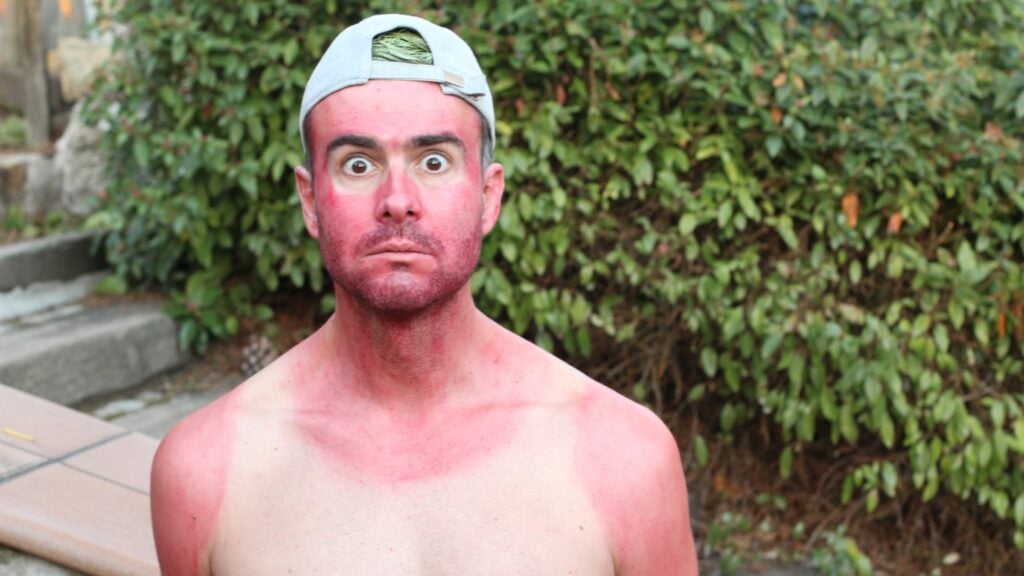
There’s no perfect trip. Despite the best planning, the unexpected happens, like the ferry service doesn’t run the only day you need it, or you didn’t know that there are two German towns named Frankfurt.
We asked our longtime travel writers and editors to tell us about their most memorable travel mistakes, the ones that taught them a significant lesson or two. Some of their stories made us chuckle, and most were relatable. If you’ve ever been seriously sick while abroad, frustrated with others on a group trip, or ignorant of the rules of the road in some foreign locale, you’ll appreciate these sticky situations.
1. Desperately Seeking Arctic Apparel
While on my first and only small-ship cruise along the southeast Alaskan coastline one September, I was so excited for the adventures ahead that I mistakenly left my luggage on the airport conveyor belt. The shuttle picking me up transported my group directly to the Mendenhall Glacier for an initial hike before dropping us off at the dock for departure. The boat had set sail before I realized that I had nothing more than the clothes on my back for a chilly seven-day itinerary. I was mortified.
Thankfully, the ship captain and company owner raided the vessel’s supply closet and were able to deck me out with a staff T-shirt and sweatshirt. An angel fellow passenger loaned me an extra puffy and a few essential layers. Disaster averted, with the help of a few kind people. —Stephanie Pearson
2. Double-Check That Google Maps Route
After skiing powder all day in the Alpine mecca of Chamonix, France, my husband and I grabbed a baguette and a hunk of cheese and hit the road in our rental Peugeot bound for Tignes, France, the next stop on our winter European road trip.
Still giddy from our time at the iconic resort, we didn’t consult Google Maps as closely as we should have. It navigated us east through the Mont Blanc Tunnel—a seven-mile-long feat of engineering that cuts through the massif and connects Chamonix to the neighboring ski town of Courmayeur on the Italian side. The one-way toll costs about $55. Baffled but believing in Google Maps, we continued to follow the directions and enjoyed the finest of scenic drives for another 30 minutes. Then the cobbled streets turned into a one-lane dirt road that soon dead-ended at a snowbank, with skiers cruising atop it.
There was nothing to do but turn around and try a different route, which, of course, directed us back through the tunnel (forcing us to pay again) and added several hours to a long day. But it made for a good story afterward. —Megan Michelson
3. Pack Back-Up Meds in Case You Get Sick
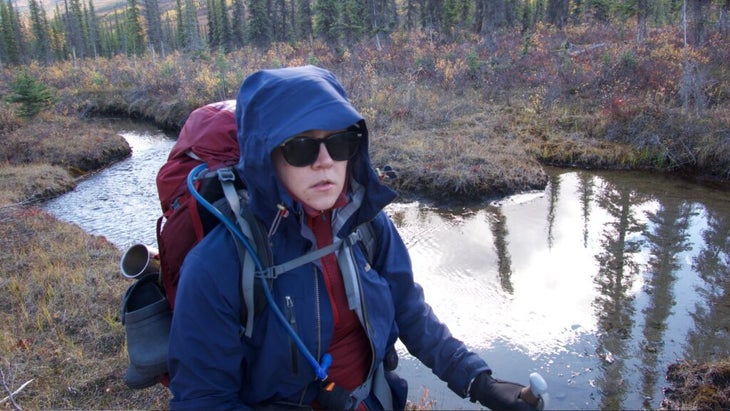
I habitually get sick in foreign countries. I’ve suffered numerous bouts of strep throat while visiting family in Sweden, food poisoning on a rural train in northern India, and came down with scarlet fever on a five-day backpacking trip in the remote Alaskan bush. That last trip was a turning point for me. I now always carry antibiotics with me when I travel. —Emily Pennington
4. Why Overpreparing Isn’t a Bad Idea
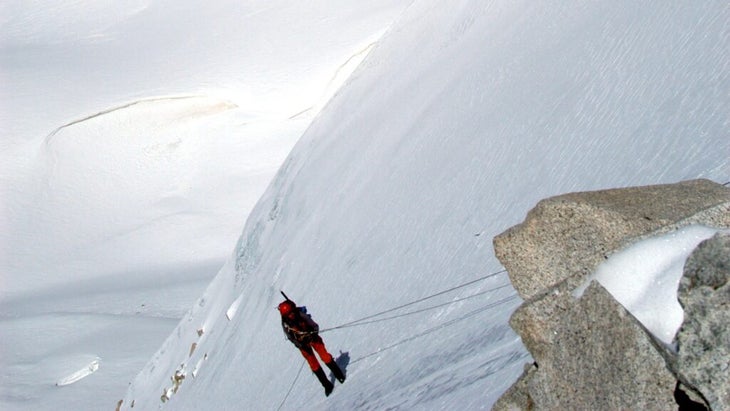
I was invited to Nepal in 2003 to celebrate the 50th anniversary of the first ascent of Mount Everest. I signed up for a 30-day trip with an outfitter that took the scenic route from the steamy jungle up over a series of very high passes, including 19,100-foot Amphu Labtsa La, and back down into Tengboche, the original base camp for the 1953 climb, which was hosting a big celebration.
The trek was absolutely stunning and supremely remote. It was also nerve-wracking. Every day we had reports that Maoists were going to intercept us. That never happened, but incompetence among some in our own group proved to be far more dangerous.
The crux of the trip was an almost impossible ask: we had to summit a “minor” 17,000-foot pass, cross an ice field, and then get both up and down Amphu Labsta La— all in a day.
I was toward the front of the group when I reached the top of Amphu Labsta La in the afternoon and took a gander at the descent. What I saw terrified me: a 50-degree slope of solid blue ice running at least 400 feet. Getting everyone down was going to be a huge ordeal, since not everyone could rappel on their own.
We ended up having to sleep atop the pass for two nights. Because much of the clients’ gear had been lowered with the porters after the initial night (everyone thought the full group would have rappelled down that day), we found ourselves stranded atop the peak with insufficient equipment. A quick tally revealed we had just three tents, three sleeping bags, and two sleeping pads for 11 people. Four of us piled into my three-person tent, and I spread my sleeping bag as best as I could over us. I didn’t sleep at all, just shivered and prayed a storm wouldn’t roll in. At first light, exhausted and pissed off at how miserable I’d been, I packed up, clipped into the rope down the pass, and rappelled myself, not waiting for anyone to lower me. You can bet I partied my ass off when we finally got to Tengboche. —Tim Neville
6. Bugged Out
Failing to zip my backpack after sleeping outside in the jungle of Panama had me toting not one, not two, but three massive (and I mean massive) cockroaches with me back to the Panama City hotel where I stayed the night at before my flight home. Between the surprise discovery and the aftermath of dealing with them, I got zero sleep and am still haunted to this day. —Stephanie Vermillion
7. Renting a Car in a Foreign Country Can Come with Pricey Curveballs
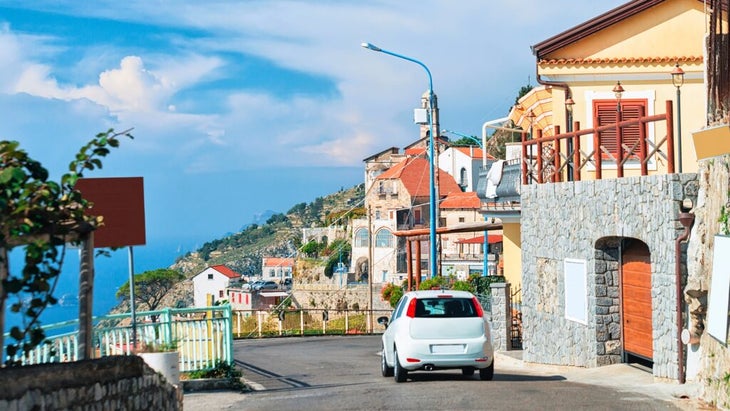
In 2019, my wife and I bought cheap tickets to Milan, rented a Fiat, and road-tripped through northern Italy. It was thrilling to speed on the mountainous highways and cruise through quaint villages via winding roads that topped out on ridgelines with views of the Mediterranean below. Because it was spring, there were few tourists, so we’d simply park, walk around visiting a plaza or ancient buildings and churches, and continue on. It was all perfect—until we got home.
On a monthly basis, I started getting fines in the mail—for improper parking, speeding, and driving in restricted residential areas without the requisite permit. At first I thought this was a mistake. Then I realized that every fine was in the place we’d visited that day.
After paying hundreds of Euros in penalties, I swore off ever traveling to Italy again. I took to retelling the story of my travails to any Italian who would listen, only to discover this is a common occurrence. One Italian told me that when he returns home, he borrows his mom’s car, breaks countless rules, and racks up ticket after ticket.
My stance on Italy has since softened, but I still get occasional fines in the mail. I refuse to pay them and try to view them as mementos of one of the best trips of my life. —Ryan Krough
8. Start Earlier than You Think You Need To
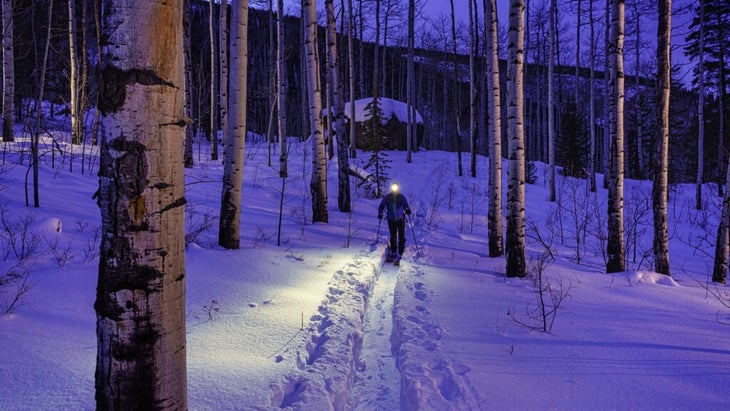
Lesson one: Don’t underestimate the approach to a backcountry cabin. My friends and I had booked the Eiseman, a popular Tenth Mountain Division hut in the Gore Range outside Vail, Colorado, and getting there required a six-mile ski tour with nearly 3,000 feet of elevation gain. No problem, we thought. We were a hardy crew of experienced backcountry skiers.
What we didn’t consider was that April’s warming temperatures had turned the snowpack to mush. Combined with a later than expected afternoon departure, the soft, sticky snow glommed to our skins, making travel considerably slow and challenging.
Lesson two: Less is more in the backcountry. We naively stuffed our packs with margarita fixings, avocados, jars of salsa, a foam roller. Needless to say, the ski in took twice as long as expected—we didn’t get to the hut until after dark—and half our crew ended up dropping gear there and returning to lighten the load of the slower folks. We were a total junk show. That said, the taco party sure was fun. —M.M.
9. The Pitfalls of an Undocumented Pilgrim
When I thru-hiked Spain’s Camino de Santiago, I carried the obligatory pilgrim’s passport—a thin leaflet littered with official stamps, tucked in a protective plastic bag. It proved I’d walked what amounted to nearly a marathon a day, and it was also my ticket into cheap albergues: glorified hostels reserved solely for pilgrims, where I could soak my feet, thread blisters, rinse my clothes, and crash hard before rising to repeat it all again.
But one day near the end of the trek, in Galicia, a massive storm rolled in while I was eating a sandwich on the side of the road. I hastily repacked my gear and booked the remaining four miles to the nearest town. When I arrived at the albergue that evening, soaking wet and exhausted, I couldn’t find my pilgrim’s passport, and no pleading with the check-in lady in Spanish would persuade her to give me a bunk without it.
So I retraced my steps, blisters bursting, leg muscles screaming, my head hammered by hail, until I found it blown up against a fence near where I’d stopped for lunch. I never misplaced that passport again. —Patty Hodapp
10. A Different Kind of Wildlife-Watching
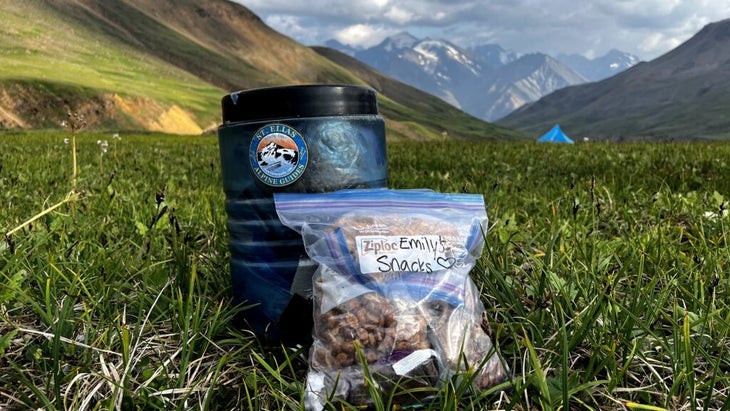
Last year on an off-trail backpacking trip to Wrangell–St. Elias National Park, I learned the importance of carrying two to three days of extra food in Alaska. My group was dropped off by a bush plane for a five-day expedition and halfway through the trip, an adolescent grizzly bear ran off with one of our bear cans packed with food. We had to ration supplies for our remaining time, but fortunately, our resourceful guide cobbled together some pretty creative and delicious meals for the final two days. —E.P.
11. A Case for the Carry-on
At the check-in counter for my flight to Germany, where I’d be joining friends to climb the Frankenjura, I noticed that airline personnel were chatting as they tagged bags. A fleeing thought crossed my mind: Always look at the tag before your bag sails away. But I didn’t.
I arrived in Nuremberg to watch an unfamiliar duffle bag circle around on the carousel, while someone in Newfoundland was looking at mine. Here I was, in northern Bavaria in late autumn, with no sleeping bag, tent, or puffy jacket. I did have my climbing shoes and harness in my carry-on, so I went on to a house in nearby Erlangen owned by extremely generous German climbers, who were letting some of our group occupy their basement.
When I explained my dilemma to free climber Kurt Albert (RIP and bless him forever), he shrugged, waved me toward his closet, and told me to take any of his clothes. There was only one problem: I’m five foot seven, while he was easily six foot one. I wore his stuff for two days. —Alison Osius
12. Frostbite Has Never Felt So Imminent
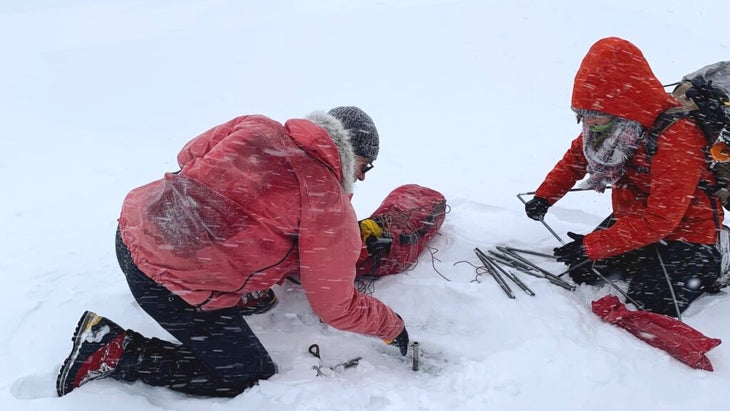
When I camped on the Greenland Ice Sheet two years ago, I learned the hard way to test my gear before bringing it on a trip. I brought “waterproof gloves” that actually weren’t waterproof at all. My hands were soaked and freezing within minutes of pitching my tent in a very wet, cold snowstorm. It was 14 degrees out. The next morning I had to thaw the gloves over the mess-tent cookstove. —S.V.
13. Tetotaling at Elevation
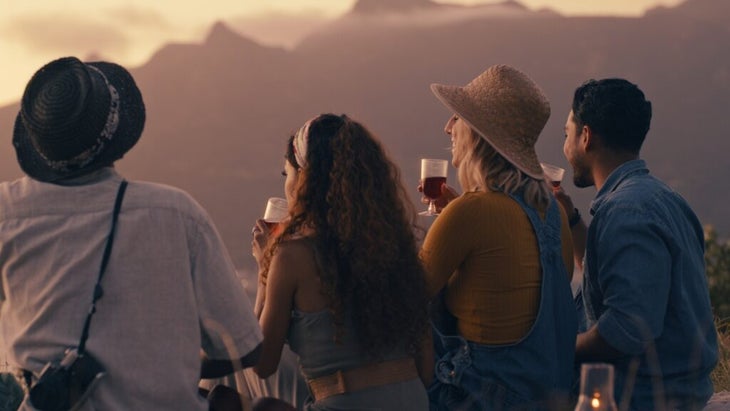
Alcohol and altitude don’t mix, a rule of thumb that took me two notable times in my life to learn. Once I flew from New York City (sea level) to Vail, Colorado, (8,239 feet) for a fun trip with a friend who was writing a story about a professional skier. The skier was going to take us all around the mountain to his favorite spots. The night before, I enjoyed two large glasses of red wine at dinner but had failed to drink much water that day. I woke up nauseous at 2 A.M., threw up for the next three hours, and missed the ski tour.
The second time I was in Chile’s Atacama Desert, located at 8,200 feet. I was staying at a gorgeous lodge with fantastic food and wine. This was a few years after Vail, and I had long forgotten that incident. So when the beautiful Chilean cabernet was served at dinner, I drank it, but I was hugging the porcelain again early the next morning. I missed an amazing hike up a volcano. Suffice it to say I now don’t drink at altitude and focus on hydrating instead. —Mary Turner
14. Tiny Things That Bite When You Least Expect It
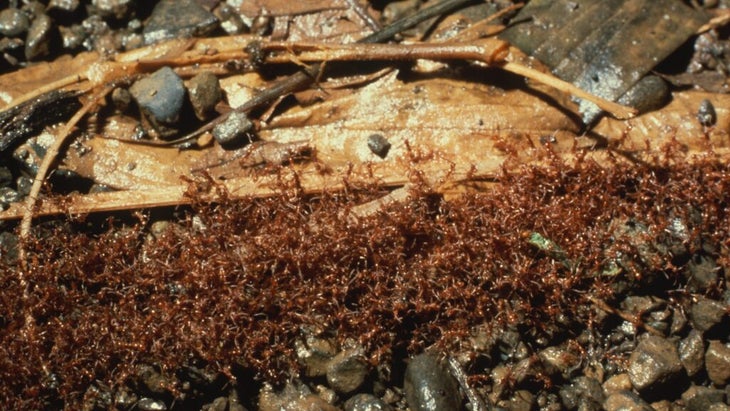
I was working for the student newspaper at Montana State University when I got a fax announcing ridiculously low airfare to Costa Rica for spring break, so my brother, girlfriend, and I all went down there to dirtbag it for a week. We were poor, so we packed hammocks, intending to string them between trees on the beach and sleep there.
We made our way to Montezuma, on the Nicoya Peninsula, which back then had one restaurant and a few houses on sandy “streets.” It was pitch-black when we arrived at the beach, and none of us had a headlamp. My feet felt wet as we crossed what must have been a small stream slipping out of the jungle through leaves. But then the sensation changed and my legs and feet exploded in what felt like fire.
“Ants!” my brother yelled. We’d stumbled right into either a nest or a train of fire ants that proceeded to bite the piss out of our legs. There was nothing to do but strip down and race for the ocean, which we also couldn’t see. Waking up to howler monkeys and swimming the next morning made everything right. —T.N.
Related
Turkish Airlines and Qatar Airways Suspend Mogadishu Flights Following US…
Home » Airlines News of Qatar » Turkish Airlines and Qatar Airways Suspend Mogadishu Flights Following US Embassy Terror Alert, Raising Security Concerns at
Local tourism destinations grow fast
Men sit at the Doha Corniche backdropped by high buildings in Doha on March 3, 2025. Photo by KARIM JAAFAR / AFP DOHA: Local tourism destinations are g
Hajj, Umrah service: Qatar Airways introduces off-airport check-in for pilgrims
Image credit: Supplied Qatar Airways has introduced an off-airport check-in
IAG, Qatar Airways, Riyadh Air, Turkish Airlines, Lufthansa & more…
Turkish Airlines – a Corporate Partner of the FTE Digital, Innovation & Startup Hub – is charting a course to rank among the top 3 global airlines for












